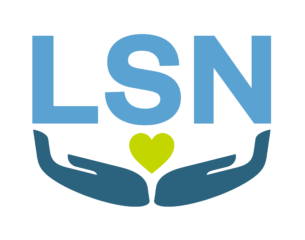And the day came when the risk to remain tight in a bud was more painful than the risk it took to blossom.
Anaïs Nin
The Courage to Heal group is a safe, supportive space centering the needs of UNC-Chapel Hill students and postdocs who identify as women or non-binary to seek support from others as they journey through recovery from sexual trauma toward a new sense of wholeness.
This is a private and confidential group that can help group members cope with their emotions surrounding the trauma. These emotions may include, but are not limited to anxiety, sadness, anger and guilt.
Some objectives are to:
- Help participants share their experience
- Help participants recognize that they are not alone & understand the current impact of this experience on their lives
- Help participants begin to process feelings and beliefs associated with the trauma.
There is power in connecting with other survivors. It helps to talk about it. You are not alone!
To join this group, please indicate your interest using the Group Interest Form. Members will need to meet with the facilitator(s) to do a brief screening interview prior to attending. The facilitator(s) will respond to all received group interest forms to set up a time to meet.
FAQs
What is the structure of the group?
There is not a pre-planned structure. During the first group, members will make important group agreements that help to create a safe and therapeutic environment. From that point on, group members will bring up topics that are important for them. Examples of topics that tend to come up include, but are not limited to: managing uncomfortable emotions, trauma responses, academic and personal situations, what it was like (or what it might be like) to disclose one’s status as a survivor to friends or family, and how to develop trust in relationships.
What are the other group members going to be like?
The Courage group is open to undergraduate and graduate students as well as post-docs. There will be a minimum of 4 group members and a maximum of 8 or 9. Group members have a history of trauma, currently view that as an important concern in their life, and will have expressed a desire to talk about their recovery with other survivors. Group members may have experienced sexual abuse as a child, a recent sexual assault, or both. It is important to know that the facilitators will create an atmosphere where everyone’s truth is respected, and where group members do not compare their experiences with each other in a way that minimizes others’ (or their own) experiences. We firmly believe that there is no one “right way” to heal from a trauma, but that we can support each other along the way.
What if I don’t like it, or discover that it isn’t the right time for me to be in this group?
We don’t ask that you make a commitment to participate in group for the entire semester. We are aware that the first few groups are often the most difficult, so we ask that you make a commitment to yourself to continue coming past that point. We are also very open to input from group members and want to make it a positive and helpful experience for all members. However, if you decide at any point that group is not a good fit, we will see if there are other services or supports we can connect you with. We only ask that you keep communication open with other group members. It has been our experience that the survivors in this group develop a connection with each other, and that they would want to hear about your decision to leave.
Is participating in group going to make things worse by bringing up difficult memories?
The first few group sessions may be particularly difficult, and there will be hard days. We openly discuss this in the group, and talk about ways to support ourselves after group and during the week. Also, since this is not a structured group, you can pace yourself so that you don’t experience a flooding of emotions. (But of course, we would encourage you to “lean in” and participate in group as much as you are able, in whatever way you are able).
Does participating in group really help?
We have received consistent positive feedback from group members about their experiences in the Courage group. They have primarily pointed to the connection piece as the most important part of the group (hearing someone else who has gone through a similar experience describing similar reactions, feeling supported, seeing their own resilience mirrored in others). However, like we outlined above, this group may not be a good fit for everyone, and we’re happy to help survivors connect with other resources.
This sounds great. How do I sign up?
Use the Group Interest Form to indicate interest. After we receive the form, one of the group facilitators will contact you to schedule a screening appointment with you to make sure group is a good fit. You will not be asked to share details of your trauma during the screening appointment (nor in the group!). If you are not sure you want to participate but want more information, we are happy to meet with you.

